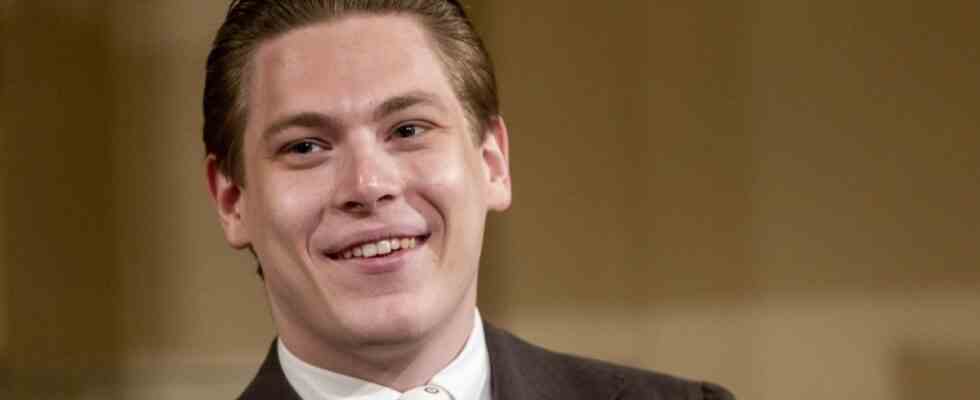When the Swiss writer Lukas Bärfuss recently gave the speech marking the 20th anniversary of the Federal Cultural Foundation, a bastion of public support for our cultural freedom, his thoughts culminated in the remark: “Ultimately, the price of freedom is one’s own life.” Literature, theatre, art – and “the people of Ukraine” all knew and talked about it, he said. We should dare more democracy, and then: “We must dare more art!” This is what a series of concerts that is just beginning, which seems to be called the Musikfest Berlin, wants to redeem, but for three and a half weeks it wants to be something much more coherent, more fundamental. So at the opening with Mahler’s “tragically” raging sixth symphony.
Formally, the Musikfest Berlin is actually just a meeting of eight international orchestras with five of Berlin’s six major orchestras, fueled by rarities of old and new folk and art music. The fact that the Odessa Philharmonic Orchestra with its conductor Hobart Earle can come to Berlin in one week under difficult conditions is thanks to the high performance of Winrich Hopps, the artistic director of the music festival, who knows: “There is no time for certainties, rather one for constant reassurance. ” The hoped-for old “normality” of culture is an “endangered and therefore to be protected possibility”.
For Klaus Mäkelä, the most important thing about conducting is not the hands or the arms, but the presence
The opening concert could not have been musically more captivating, more convincing. The seal of quality from Amsterdam is called Concertgebouworkest, but the surprise, although celebrated everywhere with astonishment, is delivered here and now by the conductor, the Finn Klaus Mäkelä. He is only 26 years old, but already music director of two symphony orchestras, in Oslo and Paris. From 2027 he will lead the Amsterdam top ensemble as music director. “The most important thing about conducting isn’t your hands or your arms, it’s usually your presence,” he recently asserted. What is required is mental strength, will and imagination to transform the music from the inner ear to the orchestra and the audience.
Klaus Mäkelä, the wiry, slim man who comes from a family of musicians, was apparently a “born conductor” at the age of twelve. Audible and visible already in the opening piece “Orion” by the Finnish composer Kaija Saariaho, a sophisticated work of art in timbres of shimmering elegance. Then Mäkelä and his Amsterdammers throw themselves into the Mahler symphony with such enthusiasm and force that the amazement is endless for eighty minutes.
Mäkelä suggestively forgets that Mahler did not compose an opera
The young man from Helsinki, formed by Finland’s old maestro maker Jorma Panula, “can” already do everything. And the orchestra follows him with somnambulistic self-confidence. The musicians, who have long been absolute Mahler specialists, have internalized the course of even the most difficult catastrophe symphony. This tells, it penetrates the course of a human life in the abyss and heavenly heights: philosophically, tonally sensually, dramatically as on the theater stage. Mäkelä suggestively forgets that Mahler did not compose an opera.
Once again it is astonishing why Mahler symphonies, derided by contemporaries, remained alien to seasoned German conductors, from Wolfgang Sawallisch to Christian Thielemann. A very young Klaus Mäkelä comes through, experiences and conducts the sixth with burning intensity, the violent contrasts of the first movement in the most inflamed body tension, the apparent idyll of the Andante in all its ambiguity, the Scherzo as a grimly beautiful rhythm imbalance and the finale in the compulsion to destroy all vitality brutal hammer blows. Klaus Mäkelä impresses with his unrest in peace and his will to go to extremes.

